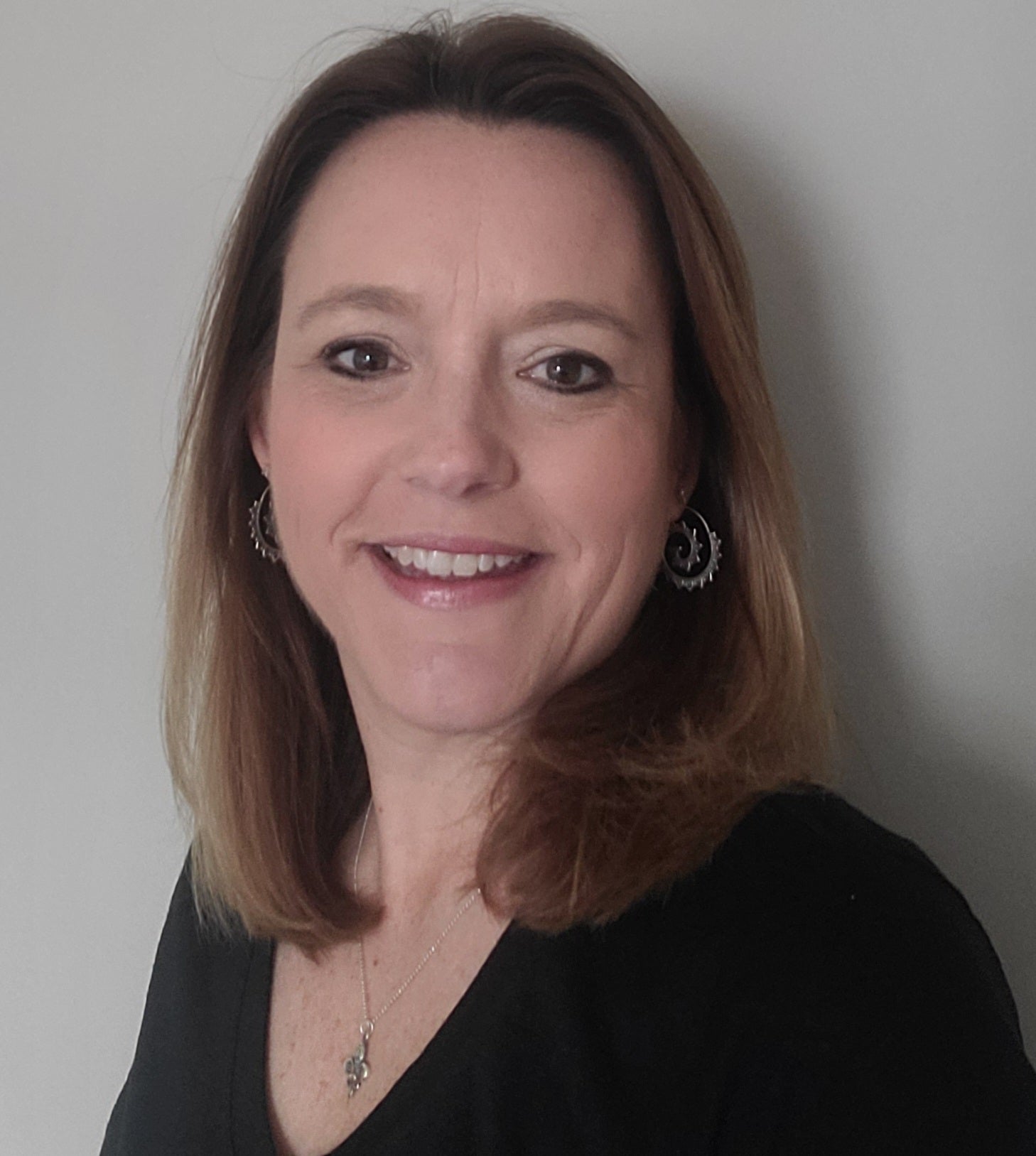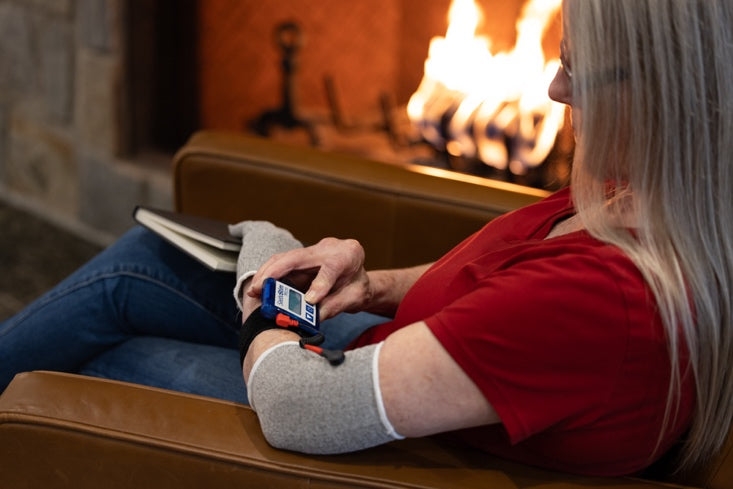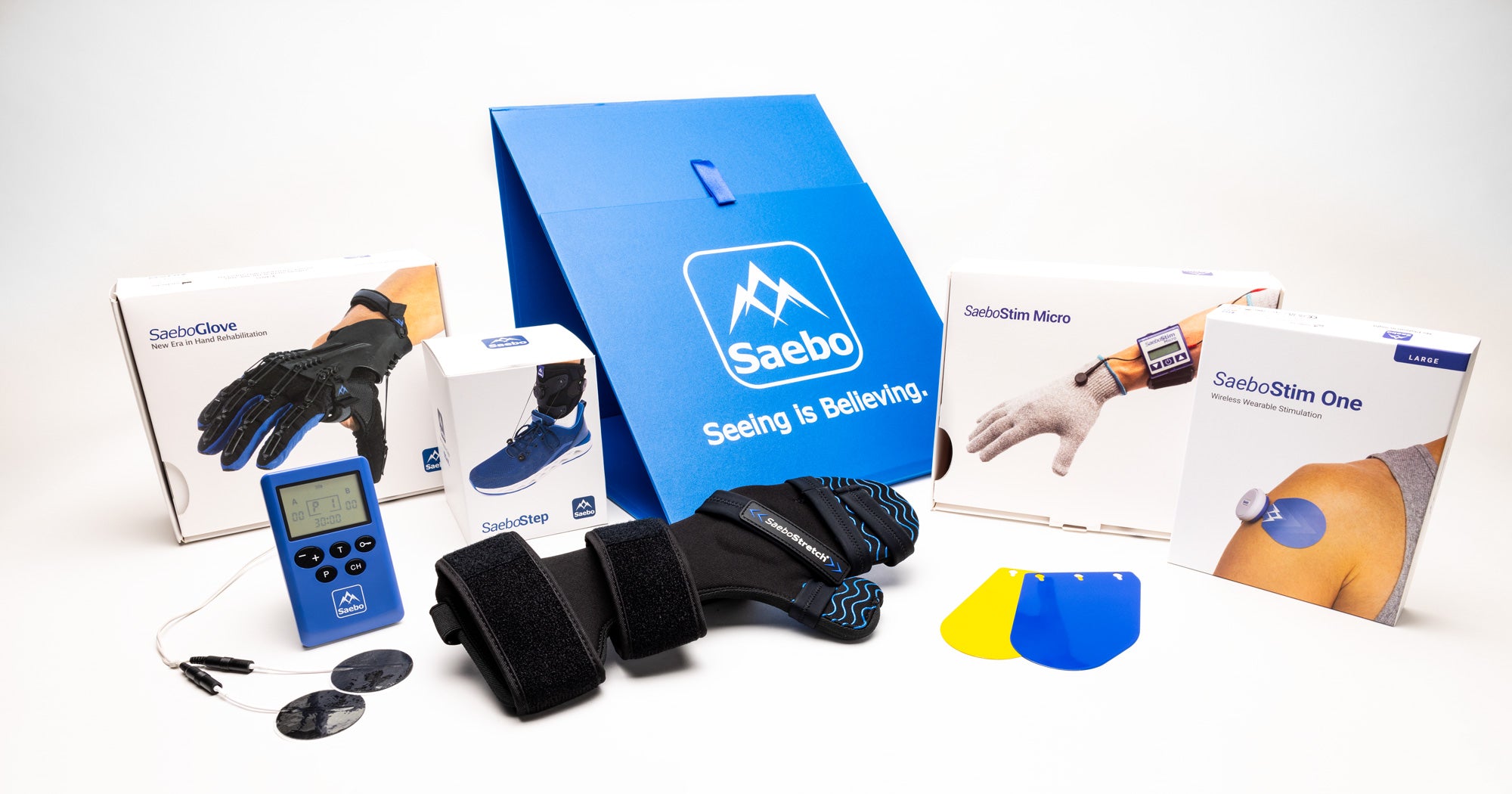OT Month Spotlight: Shelley Waller, OTR/L

For this year’s Occupational Therapy Month, we couldn’t help but interview one of our very own Saebo therapists, Shelley Waller OTR/L. Waller has worked in neuro rehab for the past 25 years and has been advocate of Saebo since the very beginning. Now, she works with us to teach other clinicians about Saebo devices.
We caught up with Waller to learn about her story, to get her advice for transitioning patients into a home setting, and to talk about Saebo and patients’ continuum of care.
What led you to become an Occupational Therapist?
I’ve been an Occupational Therapist for 25 years this summer. When I was 13, my grandfather was in a car accident and had a head injury. I would go to all of his therapy sessions with him and I ended up falling in love with his OT and everything she did. The funny part of this story is that when I ended up going to college and I walked into my class, my professor was his OT! So, that came full circle.
I’ve worked for the same company for the past 25 years. I started out at a small hospital inpatient facility and now I work outpatient in a day program. Our patients are there from 9 a.m. to 4 p.m. They eat lunch with us, they get their PT/OT speech, it’s mostly neuro and it’s a neat program.
What are some of the challenges you experience in the neuro specialty?
I don’t think of it as much of a challenge. I think it’s actually the part that excites me most – that nothing in neuro is hard and objective. It’s definitely a more fluid day. You’re never going to experience the same day twice in a row when you’re dealing with people who have had head injuries or a stroke. I like that aspect of it. I’m not really a 90-degree angle kind of girl. I like to see the challenges and the fluidity of neuro rehab.
How do you instill hope in patients who start to feel discouraged in their recovery journey?
If they start losing hope, then I know I am not doing my job and I need to do better. A huge part of our job is to bring patients hope and to show them that there are different ways to do things if something isn’t working. When this happens, it challenges me to do better and work harder with them at it.
Although you love every aspect of your job, can you pinpoint some of the things you love most about it?
The relationships. I am a people person for sure and I love the relationships with the patients. One of the things I love about the clinic that I work in is that you can see somebody change. When they come in after having a stroke, brain injury or a spinal cord injury, you can tell they feel like they’re the only person that this happened to and that they’re alone. By the time they’re finished with our program they know that they’re not, and they know there is so much more they can overcome after we’ve worked with them.
When people first come in, they’ll say things like, “Well I can’t do that I’ve had a stroke.” I’m one to say, “Are you really going to use that card in this room right now?” They can do that in other circles of their life but in therapy it’s not going to cut it. I want to make sure they feel like a real person and not someone who is defined by their stroke or brain injury. I like to find out who they are and that kind of thing.
How do you set patients up for success when they leave your program?
We have a good continuum that allows patients to go from our program to our outpatient program too. So, it’s not like we are seeing them for five days a week and then they’re going out and they’re on their own. One of the other parts I love doing too is our home visits. We go out to their house to see how it’s set up and see what we need to change. I’ll go in and I’ll look around and be like, “Yeah the door needs to come off,” and they’ll say “Okay” and whoever I am with will say, “We’re taking the door down aren’t we?” and then we will laugh.
It's so interesting because I think when people go up against these kind of things they think, “How am I ever going to fix my house? Or change this around?” I like to let them know that it’s simply just moving things around. It’s not going to rock their world if they have to do this part of it. The little things are just aesthetics, we just have to change things to make it a little bit easier.
What’s your relationship to Saebo and how does it work into your relationships with patients?
Now that I am doing the clinical support line with Saebo, I love having this aspect of it because I know we’re not throwing people out there without any support on top of it. Not only are we supporting patients, but we’re supporting the therapists who are helping them as well.
What I love about Saebo is that the pieces of equipment are meant to take home and they are meant to continue treatment. You can have all the big equipment in the clinic to have the patient be successful in the clinic, but there’s that aspect of, “Okay they’re not going to have these huge things in their houses to be able to do that.” So, with a product like the SaeboFlex, it’s meant to be able to help the patients continue on when they’re finished with us, and I love being able to say that when I’m working with them using these products in the clinic.
Do you find that the Saebo devices help patients keep up with their regimen even when you’re not with them?
For sure. The equipment puts them in a good functional position. Without it, we’re sending them home with activities that they can’t be as functional with. I know those type of activities cause them to lose interest. If they have something that helps them actually do something, such as picking up an object and moving it, that definitely motivates them to be able to use it.
I always tell people that I am not a salesperson for Saebo. I tell people that when I teach too. I am a clinician; I use it in my everyday practice and I use it because it works.
Any tips for new therapists starting out and/or therapists getting acclimated to Saebo devices?
A lot of therapists who are now getting certified with Saebo are being asked by their patients if they’ve heard of it, and if they would get certified. When I find out that a therapist said yes to their patient, to me, I know right off the bat that therapist is going to do amazing at their job. It’s because they’re being open minded and they’re willing to put in that time to be able to get a certification and to use a piece of equipment that the patient is asking for. That speaks volumes.
I think the brilliance of a new therapist is the no-fear factor when it comes to trying new things. I love the fierceness they go in with to think outside the box. I always tell new therapists that the energy they bring right off the bat is the energy your patient is going to thrive from.
All content provided on this blog is for informational purposes only and is not intended to be a substitute for professional medical advice, diagnosis, or treatment. Always seek the advice of your physician or other qualified health providers with any questions you may have regarding a medical condition. If you think you may have a medical emergency, call your doctor or 911 immediately. Reliance on any information provided by the Saebo website is solely at your own risk.



